
Updated: 10/25/2018 | October 25th, 2018
Travel writers always talk about what to do when you travel. It’s all must-see attractions and things to do. Go here, do this, see that, act this way. But what about all the things you shouldn’t do on the road? There are plenty of travel mistakes travelers make that lead to wasted money, lost time, and missed opportunities. It’s easy to say what to do, but we sometimes to forget to mention the don’ts.
A lot of the old conventional travel wisdom (using traveler’s checks or booking early) is out of date in an increasingly digital and connected world. I believe that by not telling travelers “Hey, don’t do this anymore” we keep a lot of myths going strong. We insiders know the tricks, but unless we tell the general public, they won’t!
So today, I want to share some of the common travel mistakes you should avoid. I’ve made many of these mistakes in the past, but doing things wrong shows you how to do them right.
If you avoid these common mistakes, you’ll be traveling cheaper, smarter, and longer.
DON’T eat near a major tourist site

The food near any major attraction is going to be double the price and half the flavor of what you’ll find elsewhere. When restaurants know people aren’t coming back, they don’t have to worry about consistent quality. And anyways, what do tourists know about quality local food, right? They just arrived. It’s all amazing to them, and many are happy to return home talking about how they ate “amazing” pizza in front of the Colosseum. Restaurants lack the incentive to be top-notch.
However, local, nontouristy restaurants must be high quality or else locals will stop going there. These places can’t get by serving slop. Instead of eating in a tourist trap, walk at least five blocks away from one. The further away you are, the more local, cheaper, and tastier the food will be. Avoid restaurants with glossy menus in multiple languages. That’s a sure sign of a tourist trap. If you aren’t comfortable walking into a random restaurant, you can also use these websites to find out what the locals are rating highly:
- Yelp – People offer reviews and ratings here, so you can figure out what’s good on the menu or if the restaurant is worth visiting at all.
- Foursquare – Foursquare works the same as Yelp. The mobile app lets you search nearby restaurants or eateries.
- OpenRice – Like Yelp and Foursquare, but for Hong Kong, Malaysia, Indonesia, Singapore, Thailand, and the Philippines.
Another great way I find local eateries is to walk into hostels and ask them what is good. Even if you aren’t staying there, they are a wealth of information and usually will happily point you in the right direction!
DON’T exchange money at the airport
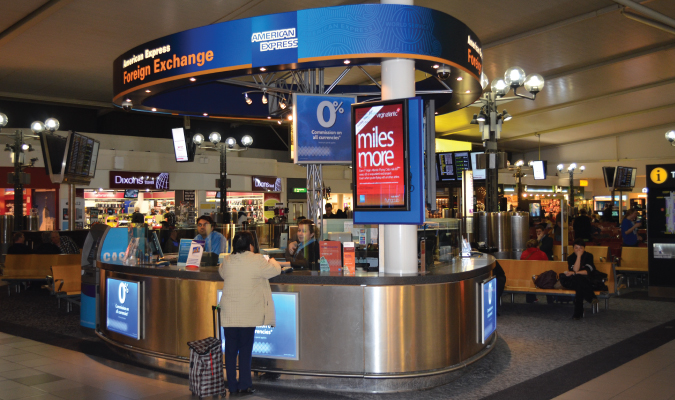
You’ll get the worst exchange rates if you do. You’re better off lighting your money on fire. To get the best rates, use an ATM or credit card. This is will be as close to the interbank rate as you can get and ensures that you are not getting ripped off.
Never exchange cash unless you absolutely have to (and there are times when you have to). I once had to exchange cash in an airport in Romania when my ATM card didn’t work, but that was an emergency. If you do need to exchange money, try to do so at a bank downtown where you’ll get better rates and fewer fees. But stick to plastic as much as possible.
READ MORE: How to eat cheap (and well) when traveling
DON’T bring traveler’s checks
Traveler’s checks are checks issued by banks for a predetermined value that allow the bearer to exchange the check for cash anywhere in the world. In the time before widespread ATM and credit card acceptance, it was the best way for travelers to have access to money without carrying a lot of cash. They are absolutely useless these days, with few banks willing to accept them and offering little protection if they are lost or stolen. There’s no need to use them anymore.
DON’T use a bank card with fees
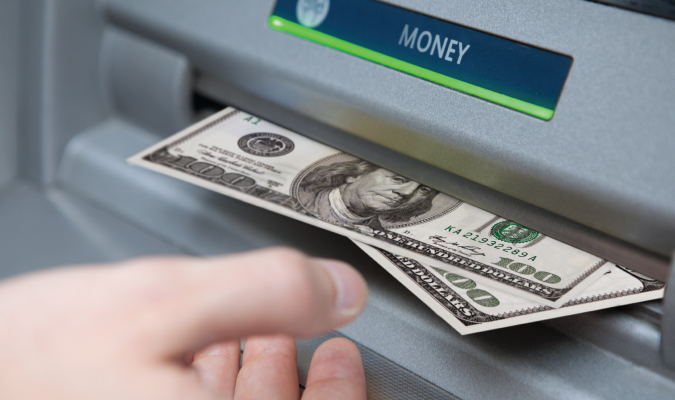
I don’t like giving banks my money. I’d rather use it for travel, and it’s been years since I paid a bank fee of any kind. Get a bank and credit card that has no foreign transaction fees so you can avoid ATM fees and other surcharges. In the United States, my favorites are Charles Schwab for a no-fee ATM card and Barclays Arrival Plus World Mastercard for the simplest no-foreign-transaction-fee credit card because you can earn points with it. There are a lot of non-fee options out there so be sure to look around.
For non-U.S. residents, here are some resources to find no-fee cards:
- http://www.creditcardfinder.com.au/travel-rewards-credit-cards (Australia)
- http://uk.creditcards.com/travel.php (UK)
- http://www.rewardscanada.ca/ (Canada)
This post goes into more detail on how to bank smart when you travel or read on how to get the right travel credit card.
DON’T look at only US-based search engines
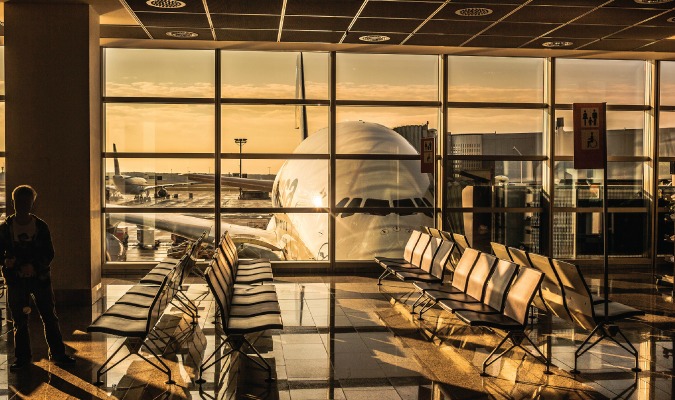
All search engines have blind spots, no matter where they are in the world, but by limiting your searching to only the large search engines, you are reducing the chance you’ll find a deal. Many sites don’t feature smaller budget airlines or seasonal carriers. While no flight search website is the best 100% of the time, avoid sticking to just Kayak or Expedia — expand your horizons. I always start with these three when I look for cheap flights:
- Momondo – This is my all time favorite search engine. They always seem to find airlines that offer the best deals and their calendar view lets you see which days are cheapest to fly. I like them because they search the small booking sites no one else does.
- Google Flights – One of the best flight search engines out there, Google Flights lets you enter your departure airport and see flights all over the world in a map so you can see where the cheapest destination in.
- Skyscanner – This great website searches a lot of different airlines, including many of the budget carriers that larger sites miss.
DON’T skip travel insurance
It may seem like a ridiculous added expense, but travel is about the unknown, and you never know what can happen on the road. You can break a leg, lose a camera, pop an eardrum scuba diving, or have to leave a country because of a natural disaster. Travel insurance protects you when you are overseas and shouldn’t be avoided — it’s the smart thing to get. It is there to protect you for both medical and nonmedical emergencies. If something does happen to you and you don’t have insurance, it can cost thousands of dollars in out-of-pocket expenses. I had a friend let her insurance lapse because she wasn’t using it; she later broke an arm in South America. It cost her thousands in doctor’s fees. I use World Nomads insurance when I’m on the road.
Read More:
- How to Find the Perfect Insurance Policy
- 10 Common Questions and Misconceptions about Travel Insurance
DON’T rule out hostels
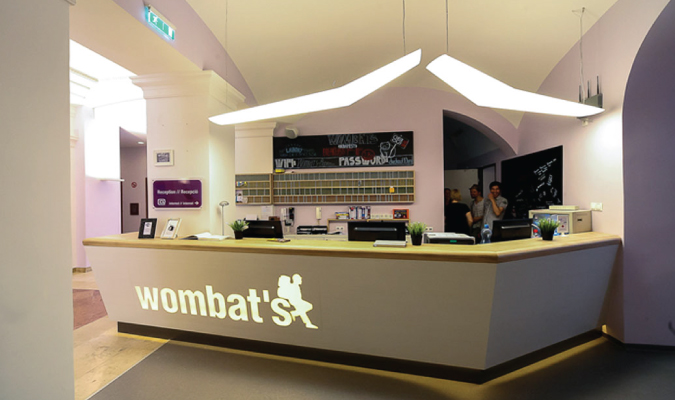
Most people think hostels have smelly, unclean, bedbug-ridden facilities that are aimed at poor college students. It’s a common stereotype perpetuated on TV and in movies over the years. My mom is always horrified when I tell her I stay in hostels. She pictures the ones she stayed at in the 1970s and pleads with me to be careful. While hostels used to be that way, nowadays, most hostels are cleaner than most hotels! They offer a variety of amenities, from pool tables to movie rooms, Xboxes, free computers, and laundry facilities, as well as organized tours, day trips, free Wi-Fi, and small private dorm rooms perfect for families, couples, or seniors who want affordable accommodation and a travel community without the hotel cost. The modern hostel is not just for cheap backpackers but also for those looking to be involved in a community. They are hubs for like-minded, travel-loving individuals.
DON’T avoid hospitality networks
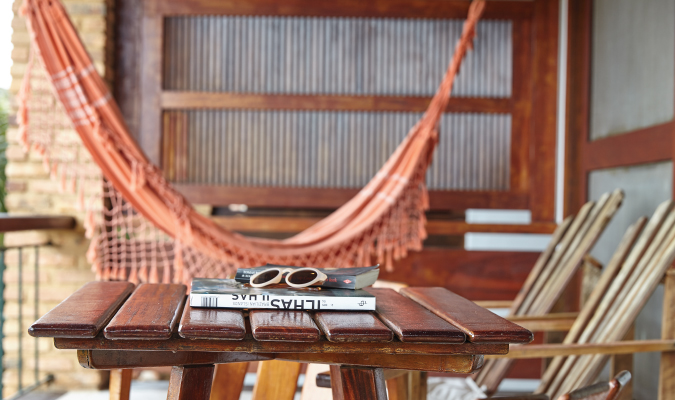
Hospitality networks let travelers stay with locals for free and also swap stories and participate in cross-cultural exchange. First, you don’t always get a couch. I’ve slept on couches and beds, in guest rooms, and in mansions. Second, they aren’t just for single travelers. I’ve stayed with couples, families, college students, and twenty-somethings and have hosted single travelers, groups, and couples. Many traveling families use this as a way to meet other families from around the globe and expose their kids to the world. It’s nice to have a free place to stay, but the real benefit of this is the ability to meet and make friends with people from different places and gain insider knowledge about your destination. I’ve made many friends through these networks. Don’t overlook them. These are my favorite:
- Couchsurfing – This website allows you to stay on people’s couches or spare rooms for free. It’s a great way to save money while meeting locals who can tell you much more about a city than you will find out in a hostel/hotel.
- Servas – Like Couchsurfing, you can connect with locals here and arrange homestays.
- BeWelcome – Another hospitality/cultural exchange website with a widespread community.
This page can give you more information on how to use these networks to save money and meet locals.
DON’T take taxis
Taxis are where budgets go to die — they are always overpriced. Skip them. The only time these are worth using is if you are splitting the fare among many people or need to get somewhere super late at night. Use public transportation as much as possible.
DON’T be penny wise but pound foolish

As they say, time is money and, since travelers tend to have more time than money, they save money at the expense of time. However, your time is worth something. It may save you $2 by walking instead of taking the bus, but if it takes you an extra hour to get to where you are going, is that really worth it? You may be able to save $30 by taking a flight with two connections, but is the savings worth it when you know you’re going to be miserable and arrive tired? Budget travel is not a race to the bottom. It’s about being smart with both your money and time. Avoid wasting time as much as you avoid wasting money.
DON’T book your trip too early
I understand it’s easy to get excited about your trip and — to make it feel real — book your flight, hotel, or resort right away. It’s done and you are going! But that’s a mistake. You’ll be the person who ended up paying more than others. When it comes to travel, the early bird doesn’t always get the worm. Don’t be overeager. Wait for the deals.
For your flight, wait about three to four months before your trip. This is when airlines start to raise or lower prices based on demand. For cruises or tour groups, wait until the last minute. Companies have to fill boats and tours, so they offer amazing last-minute deals to fill unused space — no one wants to set off with a boat half full. Here are some posts that expand on this idea more:
DON’T skip the local tourist office
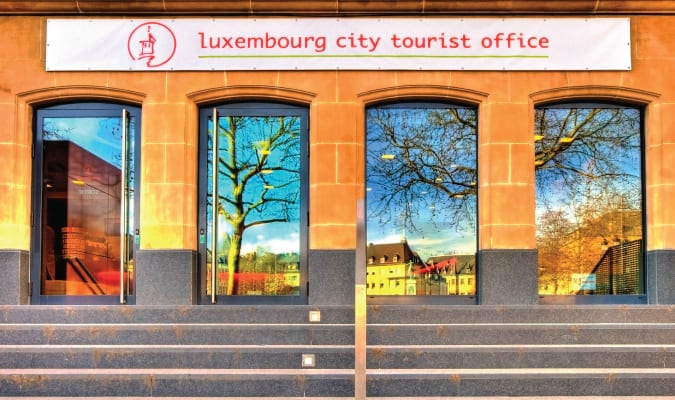
I’m always surprised at how few tourists visit the local tourism board. It’s always my first stop on any trip. They have advice on current events, festivals, and off-the-beaten-path information you aren’t going to find in any guidebook. Their job is to literally know everything about where you are. They get paid to help you. When you get to a new city, be sure to head to the tourism office and ask for information on what to see and do, and where the deals are. They have maps and discount cards, and they can help book accommodations.
Avoiding these common travel mistakes will help you stop wasting money, save time, find more rewarding and cheaper travel experiences, get off the beaten path, and be a better traveler. People who follow the guidebooks and just “click and go” when they book online end up paying more. If you put in some extra work, you’ll save big, and the less you spend, the more you can travel!
Be smart, be savvy, and learn to travel with ease.
CONTINUE READING: 61 TIPS TO BECOMING A MASTER TRAVELER
Book Your Trip: Logistical Tips and Tricks
Book Your Flight
Find a cheap flight by using Skyscanner or Momondo. They are my two favorite search engines because they search websites and airlines around the globe so you always know no stone is left unturned.
Book Your Accommodation
If you want to stay elsewhere, use Booking.com as they consistently return the cheapest rates for guesthouses and cheap hotels. I use them all the time. You can book your hostel – if you want that instead – with Hostelworld as they have the most comprehensive inventory.
Don’t Forget Travel Insurance
Travel insurance will protect you against illness, injury, theft, and cancellations. It’s comprehensive protection in case anything goes wrong. I never go on a trip without it as I’ve had to use it many times in the past. I’ve been using World Nomads for ten years. My favorite companies that offer the best service and value are:
- World Nomads (for everyone below 70)
- Insure My Trip (for those over 70)
Looking for the best companies to save money with?
Check out my resource page for the best companies to use when you travel! I list all the ones I use to save money when I travel – and I think will help you too!
The post 12 Things Not to Do When You Travel appeared first on Nomadic Matt's Travel Site.
from Nomadic Matt's Travel Site https://www.nomadicmatt.com/travel-blogs/not-to-do/
No comments:
Post a Comment